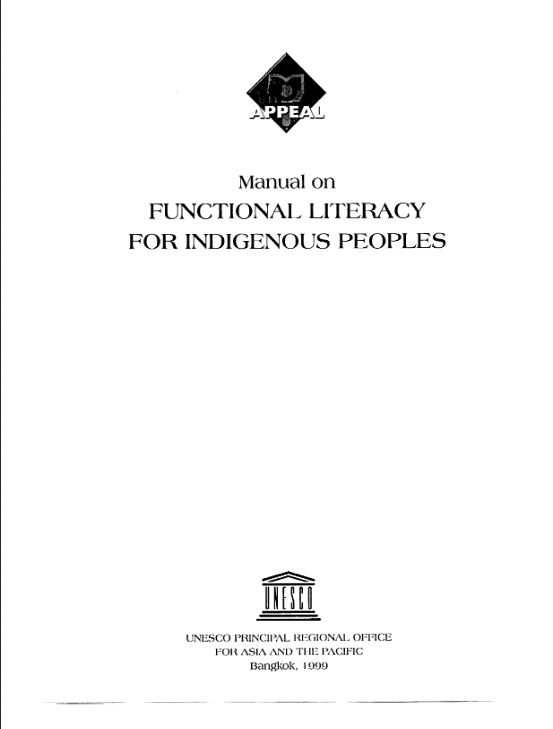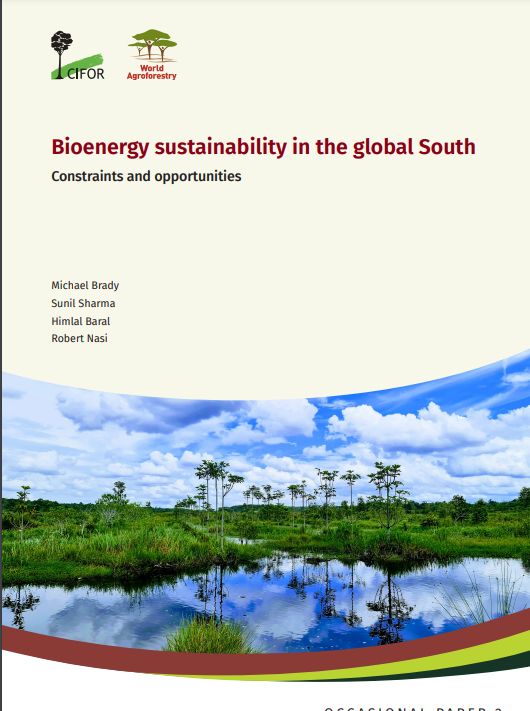Knowledge Hub
Short Supply Chains For Local Food in Mountain Areas
2010
Author(s): Teahana BK, Kranisa CL,Inglisb C,Leata P, Gihaa CR
The paper aims to investigate factors responsible for the resilience and long term survival of short, local food supply networks formed in mountain areas characterised by low population density, remote location and underdeveloped infrastructure.

UNESCO has recognized that to participate more actively in the development of society indigenous communities, including tribal people and ethnic groups in the Asia-Pacific region have to make the transition from oral literacy traditions to cultures that combine oral and written literacy. The manual has been conceived to support interactive literacy training programmes where trainers are actively engaged in the learning process. In this sense. it adopts a learner-centred approach to training and functional content areas.

Understanding the Application and Use of Indigenous Research Methodologies in the Social Sciences by Indigenous and Non-Indigenous Scholars
2021
Author(s): Pidgeon M , Riley T
Research partnerships with Indigenous communities are relationships with cultural expectations of responsibility, relevance, and respect for Indigenous knowledge, goals, and aspirations. Indigenous communities have been seeking access to and ownership, control, and possession of research in their communities ever since “researchers” came to their lands (Brant Castellano, 2004; Wilson, 2008)

Indigenous Food Systems, Agroecology and the Voluntary Guidelines on Tenure: A meeting between indigenous peoples and FAO
2015
Author(s): Food and Agriculture Organization of the United Nations
This event has also served the purpose of complying with the 2014 recommendation from the UNPFII for FAO to organize with Indigenous Peoples a meeting on the Voluntary Guidelines on the Responsible Governance of Tenure of Land, Fisheries and Forests in the Context of National Food Security (VGGT) .

Labelling and certification schemes for Indigenous Peoples’ foods : Generating income while protecting and promoting Indigenous Peoples’ values
2022
Author(s): Food and Agriculture Organization of the United Nations
This review entitled “Labelling and certification schemes for Indigenous Peoples’ foods: Generating income while protecting and promoting Indigenous Peoples’ values” provides an important building block in a much larger vision, which is to enable Indigenous Peoples to continue to be innovators of sustainable markets in favour of biodiversity and nutritional security.

Voluntary Guidelines to Support the Progressive Realization of the Right to Adequate Food In the Context of National Food Security
2005
Author(s): Food and Agriculture Organization of the United Nations
The Right to Food Guidelines address a range of activities that States should ideally undertake in order to realise the human right to adequate food. The Guidelines anticipated the urgency to address today's most pressing global challenges, which requires to be overcome by leaving no one behind. They have influenced the global agenda to eradicate hunger and malnutrition over the past 15 years and are still relevant to today’s global efforts for achieving the SDGs.

Education and Indigenous Peoples : Prior Inclusive Education
2014
Author(s): UNESCO
This paper briefly considers the current situation with reference to studies carried out on indigenous peoples’ education in recent years before closing with a series of recommendations for consideration in the consultation process towards a post-2015 development agenda.
Working With Informality: Constructive Ways To Transform Food Systems
2023
Author(s): Vorley B
This working paper explores the challenges involved in reversing decades of underinvestment, and why focusing too closely on formalisation may price out or remove informal food systems — and those who depend on them — from the market.

Bioenergy Sustainability in The Global South Constraints and Opportunities
2023
Author(s): Brady M, Sharma S,Baral H, Nas R
The study concludes that a global South bioenergy forum is needed to support dialogue, learning and cooperation and help ensure that the positive, transformative aspects of bioenergy are realised and deleterious ones avoided. An example of such a forum is the CIFOR-ICRAF Circular Bioeconomy Transformative Partnership Platform (https://www.cifor.org/cbe).
Youth Engagement in Land And Ecosystem Restoration
2021
Author(s): Kemeh SD, Kabalan AAM
This working paper presents a transformative vision of young people’s engagement in the restoration agenda at multiple scales.



